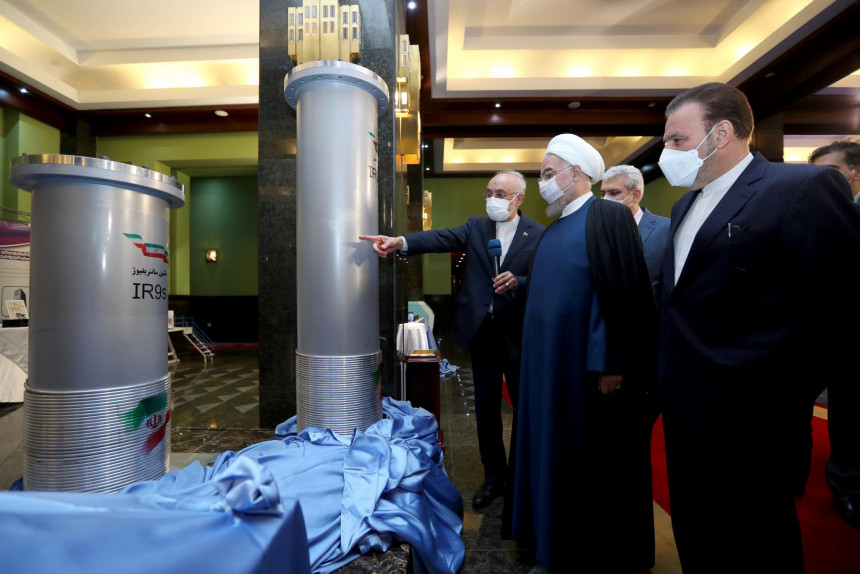Iran's isolation contributes to the consolidation of alternative centers of power to the West

On 12 April, the European Council issued a statement on additional sanctions against Iran: “The Council today decided to extend its restrictive measures responding to serious human rights violations in Iran until 13 April 2022. These measures consist of a travel ban and an asset freeze, and a ban on exports to Iran of equipment which might be used for internal repression and of equipment for monitoring telecommunications. In addition, EU citizens and companies are forbidden from making funds available to the listed individuals and entities." Sanctions were imposed on eight Iranians for their actions in November 2019, when demonstrations escalated into violence.
On the one hand, the European Council's determination to condemn any manifestation of violence, even one that took place a long time ago, is to be welcomed, as the new sanctions are based on events two years ago. However, the EC's new additional sanctions came at a time when efforts are being made to find a settlement between Iran and the United States on the return to an Iranian nuclear deal. In addition, the European Council's decision was circulated the day after a cyber-attack on Iran's nuclear site in Natanz on 11 April, suspending the power supply to the site. The cyber-attack damaged uranium enrichment centrifuges, creating a risk of possible radioactive leakage. The new and modern uranium enrichment cascade at Natanz was only launched on 10 April, when it was inaugurated by Iranian President Hassan Rouhani.
Without going deeper into the cyber-attack on the nuclear facility (Ali Akbar Salehi, head of Atomic Energy Organization of Iran, said it was carried out by Iran's "opponents of the country's industrial and political progress who aim to prevent development of a thriving nuclear industry", but the Iranian Foreign Ministry said it was carried out by Israel), such an attack, as well as additional sanctions imposed by the EU, will not contribute to the normalization of relations between the West and Iran.
Following the imposition of additional sanctions by the European Council, the Iranian Foreign Ministry reacted swiftly, announcing that it was suspending cooperation with the EU in many important areas and would consider imposing retaliatory sanctions.
Those shaping the EU's policy towards Iran may have thus intended to put pressure on Iran to make concessions in the negotiations on the changes to the nuclear deal signed in 2015 with Iran, the United States, Britain, China, France, Germany and Russia. In the agreement, Iran undertook to limit its nuclear program in exchange for easing sanctions. However, after former US President Donald Trump announced his decision to withdraw from the treaty in 2018 and the US renewed economic sanctions against Iran, the reorientation of Iran's economic ties from West to East resumed. According to information published by OPEC, already in 2019, 90.8% of Iranian oil exports went to East Asia and less than 9% were exported to Central and Eastern Europe. Iran also did not supply oil to America and Australia (see figure).

Such a reorientation of economic relations is already taking on long-term characteristics. On March 27 this year, Iran and China signed a 25-year agreement on comprehensive strategic cooperation. The Iran-China agreement provides support for the modernization of Iran's industry, as well as cooperation in oil extraction, mining, transport, agriculture, and so on. At the same time as changing the strategic partnership, Iran is becoming much more active in building alternative centers of power in the Islamic world. The virtual D-8 forum at the highest level has just concluded on April 8. D-8 - the Organization for Economic Cooperation (Developing-8) - was created as an alternative platform for exchanging views without the influence and presence of the main ally of the United States in the Islamic world - Saudi Arabia. Bangladesh, Egypt, Indonesia, Malaysia, Nigeria, Pakistan, and Turkey also participate in the D-8, in addition to Iran.
It is likely that setting the goal of forcing Iran to make concessions through sanctions, cyber-attacks and the threat of war will ultimately lead to a different and completely opposite goal. EU and US sanctions will intensify and accelerate the consolidation of centers of power that are alternative to the Western world.
*****
Be the first to read interesting news from Latvia and the world by joining our Telegram and Signal channels.
